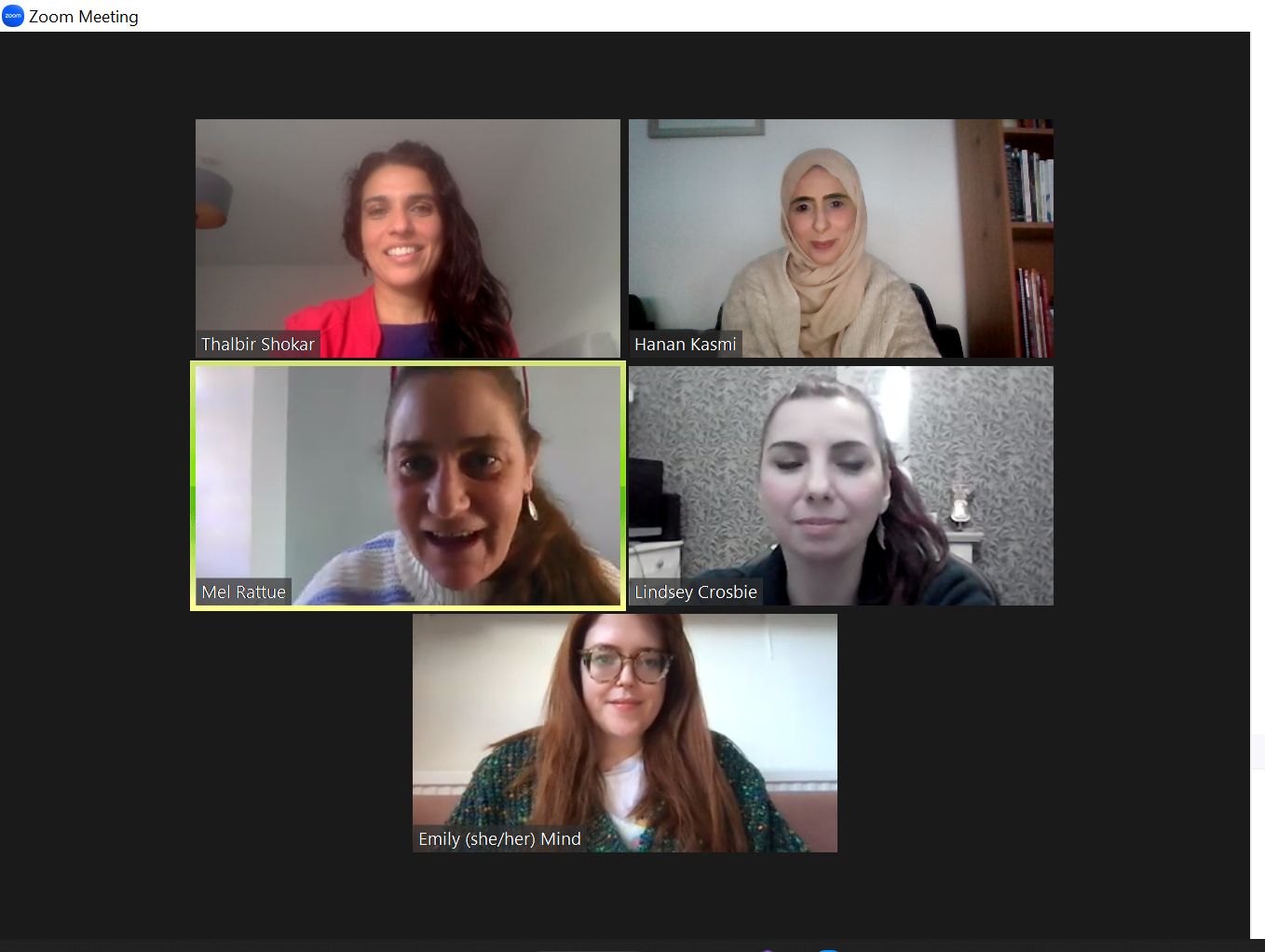Women Side by Side Toolkit launch: reflections
On Tuesday, 22 November, we launched the Women Side by Side toolkit – a practical, informative hands-on resource designed for those running women's peer support groups or about to set one up. In 4 breakout rooms, we discussed the following topics:
- Trauma-informed peer support
- Leadership and peer support facilitation
- Embedding anti-racism
- Online peer support.
Trauma-informed peer support
In the trauma-informed peer support room, we discussed traumatic responses – the reactions the body and brain have following a traumatic event. For women, this is usually around relationships.
Traumatic responses can look a number of ways: people can freeze, flight, fight, flag, faint, or fawn. Fawn tends to be common amongst women and can be especially difficult in a peer support setting – for example engaging in people pleasing behaviour to avoid conflict and establish a sense of safety.
Women with experiences of trauma often rely on others as a response, and this is where peer support can help heal trauma, and why having a trauma-informed model in peer support can help.
A practice that can benefit survivors and staff, it can avoid the retraumatization which sometimes happens in mainstream services and closes the gap between facilitators and service users. However, to deliver this, it sometimes means organisations need to make systematic change – for example investing in self care to avoid burnout in staff. There are several trauma-informed principles, many of which cross over with the peer support values detailed in the toolkit: safety, choice, collaboration, trustworthiness, and empowerment.

Leadership
In the leadership breakout room, we discussed many of the leadership qualities that women have.
We discussed the leadership qualities involved in being a mum, as well as the resilience that women have – using criticism as a way to fuel your learning, rather than taking them personally. Empathy and basic humanity were also mentioned as leadership qualities many women have.
We also discussed impostor syndrome: how prevalent it is in women. One participant talked about experiencing impostor syndrome every day, highlighting the importance of reminding yourself that nobody knows more about the specific work you are doing and your personal experiences better than you. Be your own champion – your peers want you there!
We also discussed how this can be a journey, and finding yourself and recognising and listening to your own emotions is a crucial part of a leadership journey.
Embedding anti-racism
In the embedding anti-racism breakout room, we discussed the importance of antiracist approaches within peer support, and how safe spaces are vital. This also means that facilitators should look to build their confidence in discussing these issues.
Education and awareness is key, as well as resource sharing to ensure that this confidence can grow. We also discussed the importance of listening and giving voice to people of colour, ensuring that we do not shy away from uncomfortable conversations. This requires us to lead with empathy: be ready to apologise and be open to challenge.
Being intersectional is key, making sure you are regularly checking in with people in your group about what they might need. In terms of supporting anti-racism in your peer support group, we also discussed several practical steps. Ensure you keep your recruitment open and inclusive, and ensure that your terms of reference are also inclusive. Have a zero tolerance approach to racism.
Though discussions can be open, make sure ground rules are firm and understand the boundaries that have been set by attendees. Acknowledge issues when they arise, rather than ignoring it: be proactive in dealing with issues. Do not sit on the fence: part of being an ally shows support for marginalised, racialised communities.
Online peer support
Online peer support can take many forms, including Zoom or Teams meetings, WhatsApp groups, forums, and Facebook groups. Each has pros and cons, so it is important to choose the best fit for your group.
It is generally more accessible because people can fit it around other commitments – this can be a particular issue for caregivers or people whose disabilities/mental health issues prevent them from leaving their home regularly.
Organisations need to take access to technology into account, and should consider providing sim cards or tablets for those whom poverty might be a barrier. Some group members may need addition help and/or training to access online technology.
Online groups can be positive, as people often feel safer and more at ease in their own home environment and can grab a drink, turn their camera off, or take breaks if overwhelmed. However, confidentiality can be an issue as it is hard to know who else can hear or see the online meeting. In situations where someone has an unsafe home environment, they might feel safer engaging in peer support outside the home.
Anonymity is a double-edged sword. People feel braver and more able to share, but might be disinhibited and behave in ways that they might not in person. Clear guidelines and ground rules are needed to ensure appropriate behaviour. These should be agreed to by everyone and the facilitator can then use them as a reminder if an issue arises. The facilitator also needs clear boundaries about when they are/are not available online.
Zoom fatigue is an issue, and Mel recommended movement/grounding exercises to help. She also recommended getting group members to talk about what they were going to do after the meeting as a closing exercise to ease them back into real life.











